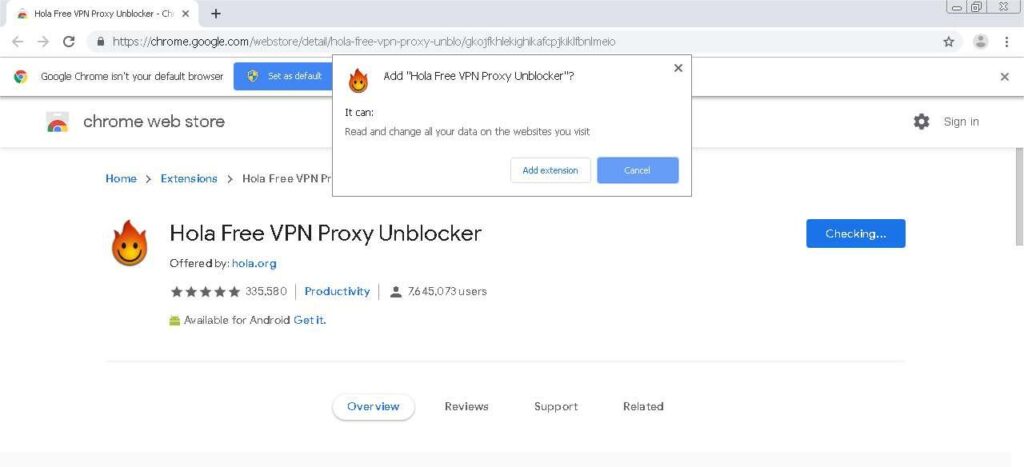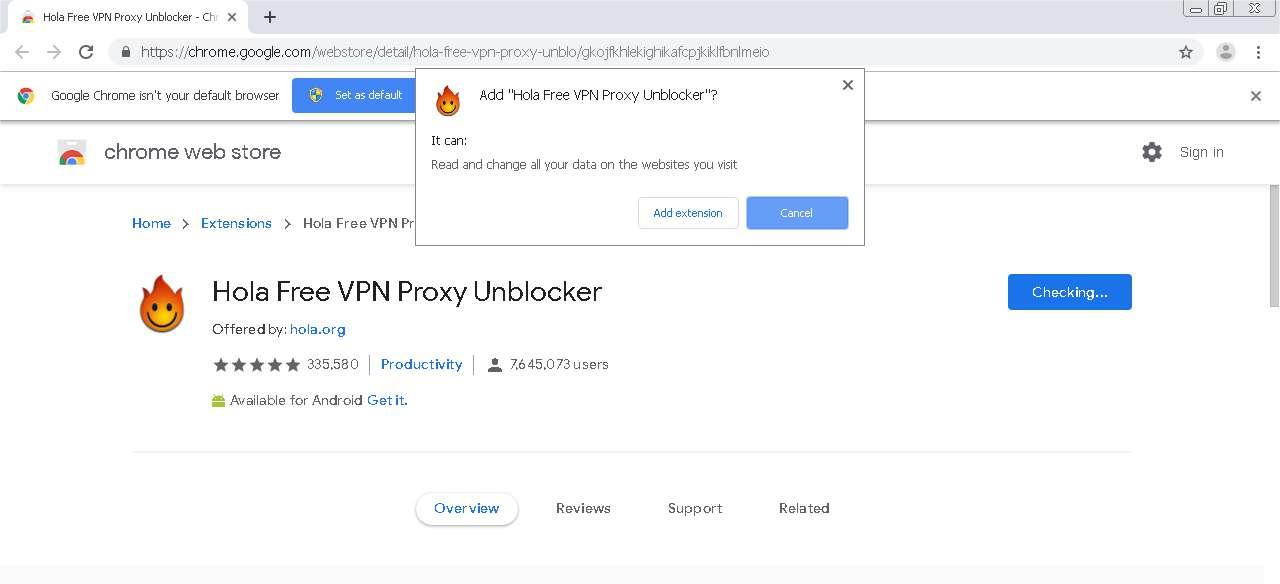
Chrome Hola Plugin: Unveiling the Truth About This Controversial Extension
The Chrome Hola plugin, once a popular choice for accessing geo-restricted content, has garnered significant controversy over the years. While it initially attracted users with promises of bypassing geographical limitations and providing access to a wider range of online content, the underlying practices of Hola have raised serious concerns about privacy, security, and ethical conduct. This article delves into the details of the Chrome Hola plugin, exploring its functionality, the controversies surrounding it, and the potential risks associated with its use. Understanding these aspects is crucial for making informed decisions about whether or not to use this extension and for seeking safer alternatives.
What is the Chrome Hola Plugin?
The Chrome Hola plugin, also known as Hola VPN, is a browser extension that claims to allow users to bypass geographical restrictions and access content that might be blocked in their region. It operates on a peer-to-peer (P2P) network, where users share their bandwidth with each other. This means that when you use Hola, your internet connection can be used by other Hola users, and vice versa. The plugin was initially marketed as a free and easy-to-use solution for accessing streaming services, websites, and other online content that might be unavailable in certain locations.
How Does the Chrome Hola Plugin Work?
The Chrome Hola plugin functions by routing your internet traffic through other users’ computers in different geographical locations. When you request a website or online service, Hola selects a user in a location where the content is accessible and routes your request through their connection. This makes it appear as if you are accessing the internet from that location, effectively bypassing geographical restrictions. In return, your internet connection can be used by other Hola users to access content from your location. This P2P network is the core of Hola’s operation, and it is also the source of many of the controversies surrounding the plugin.
The Controversies Surrounding the Chrome Hola Plugin
Despite its initial popularity, the Chrome Hola plugin has been embroiled in several controversies that have raised serious concerns about its security, privacy, and ethical practices.
Bandwidth Sharing and Potential Misuse
The P2P network that Hola operates on means that users are essentially sharing their internet bandwidth with each other. This can lead to slower internet speeds for users who are actively using Hola, as their connection is also being used by others. More concerningly, the shared bandwidth can be used for malicious purposes, such as illegal activities or botnet attacks. Since your IP address is associated with the traffic originating from your connection, you could be held responsible for actions taken by other Hola users using your bandwidth. This is a significant risk that many users are unaware of when they install the Chrome Hola plugin.
Security Vulnerabilities
Security researchers have identified several vulnerabilities in the Chrome Hola plugin that could expose users to potential threats. These vulnerabilities could allow attackers to gain access to users’ computers, steal personal information, or install malware. The fact that Hola operates as a P2P network also increases the risk of security breaches, as it creates a larger attack surface for malicious actors. [See also: Best VPNs for Chrome] Regular updates are crucial for any software, including browser extensions, to patch security flaws. However, the historical track record of Hola regarding timely and effective security updates has been questionable, leaving users vulnerable for extended periods.
Privacy Concerns
Privacy is a major concern with the Chrome Hola plugin. The plugin collects data on users’ browsing habits, including the websites they visit and the content they access. This data can be used for targeted advertising or sold to third parties. Hola’s privacy policy has been criticized for being vague and ambiguous, leaving users uncertain about how their data is being used. The lack of transparency surrounding Hola’s data collection practices raises serious concerns about user privacy. It’s crucial for users to be aware of what data is being collected and how it is being used before installing any browser extension, including the Chrome Hola plugin.
Selling User Bandwidth Through Luminati
One of the most significant controversies surrounding Hola is its connection to Luminati, a commercial VPN service that sells user bandwidth to businesses and other organizations. Hola essentially uses its free user base to create a massive proxy network that is then sold to Luminati customers. This means that your internet connection can be used by Luminati customers for a variety of purposes, including market research, ad verification, and even potentially malicious activities. The fact that Hola users are unknowingly contributing to a commercial service without their explicit consent has been widely criticized as unethical and exploitative. This practice is a significant departure from the initial promise of a free and community-driven VPN service.
Alternatives to the Chrome Hola Plugin
Given the security, privacy, and ethical concerns associated with the Chrome Hola plugin, it is advisable to seek alternative solutions for accessing geo-restricted content. Several reputable VPN services offer secure and reliable ways to bypass geographical restrictions without compromising your privacy or security.
Reputable VPN Services
Consider using a reputable VPN service that does not operate on a P2P network and has a strong track record of protecting user privacy. These VPNs typically use encryption to secure your internet traffic and prevent third parties from monitoring your online activity. Look for VPNs with clear privacy policies, transparent data handling practices, and a commitment to user security. Examples include ExpressVPN, NordVPN, and Surfshark. [See also: Comparing Top VPN Providers]
Proxy Servers
Proxy servers can also be used to bypass geographical restrictions, but it is important to choose a reputable proxy service that does not log your browsing activity. Proxy servers act as intermediaries between your computer and the internet, masking your IP address and making it appear as if you are accessing the internet from a different location. However, unlike VPNs, proxy servers do not typically encrypt your internet traffic, so your data may be vulnerable to interception. Be sure to research and select a proxy server with a strong focus on privacy and security.
Tor Browser
The Tor browser is a free and open-source browser that anonymizes your internet traffic by routing it through a network of relays. This makes it difficult for third parties to track your online activity or identify your location. While Tor can be slower than other VPN services, it provides a high level of anonymity and is a good option for users who are concerned about privacy. However, using Tor may also raise suspicion from some websites and services, as it is often associated with illicit activities.
Conclusion
The Chrome Hola plugin, despite its initial appeal as a free and easy-to-use solution for bypassing geographical restrictions, has raised significant concerns about security, privacy, and ethical conduct. The P2P network that Hola operates on can lead to slower internet speeds, potential misuse of your bandwidth, and security vulnerabilities. The plugin’s data collection practices and connection to Luminati have also been criticized as unethical and exploitative. Given these concerns, it is advisable to seek alternative solutions for accessing geo-restricted content, such as reputable VPN services, proxy servers, or the Tor browser. By making informed decisions about the tools you use to access the internet, you can protect your privacy, security, and online freedom. Before installing any Chrome Hola plugin or similar extension, always thoroughly research its background, privacy policy, and security record. Your online safety and privacy are paramount, and it’s worth investing in reliable and trustworthy solutions.

